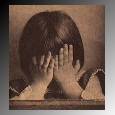
Child Abuse refers to willful physical and/or emotional maltreatment of a child. Child abuse can occur anywhere and at anytime. The home should be a place, which provides a child with warmth and security. However, it is alarming to find out that the home is a commonplace for child abuse.
Possible Causes of Child Abuse
| Long working hours reduce the
amount of interaction time between parent and child. Parents may not empathise
with their children’s needs. Parents’ expectations may be beyond the ability of the child. When children are unable to meet their parents’ expectations, abusive behaviour results. |
|
Exposure to pornography may also lead impressive teenagers to improper sexual behaviour. Their targets are mostly to be the vulnerable young.
Victims of child abuse tend to be aggressive as compared to other children. It is likely that they may show signs of withdrawal. Due to maltreatment, it is not surprising that these children are slower in cognitive development. Research has shown that such victims usually find difficulties adapting to changes as they have already lost confidence in the society (Wolfe, 1991).
Ways
to prevent Child Abuse 
One of the
most important measure is to through mass education whereby, neighbours and
relatives can report any suspicious cases.
As abilities
of each child differ, parents should also not compare the ability of one child
to the other. Instead, it is advisable that parents should review their
child’s expectation with a therapist and work out a reasonable standard for
their child. At the same time, parents should learn to accept any developmental
weaknesses in their child. This is to refrain from placing too much pressure on
both the child and his parents (Wolfe,1991).Parents should be encouraged to
attend workshops like stress management and proper parenting skills. This is to
prevent impulsive acts on their child over trivial matters.
In addition, schools
can teach children more about child abuse and to report any such cases to either
the school or the police. At the same time, teachers can attend workshops on how
to look out for signs of child abuse in their students.
Some
articles on Child Abuse:
Links to websites on issues
pertaining to the prevention of child abuse:


